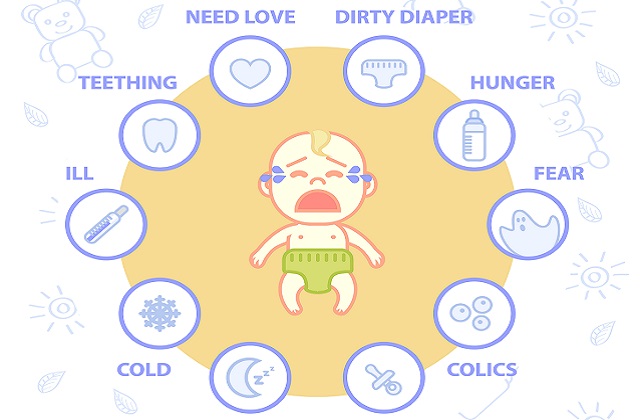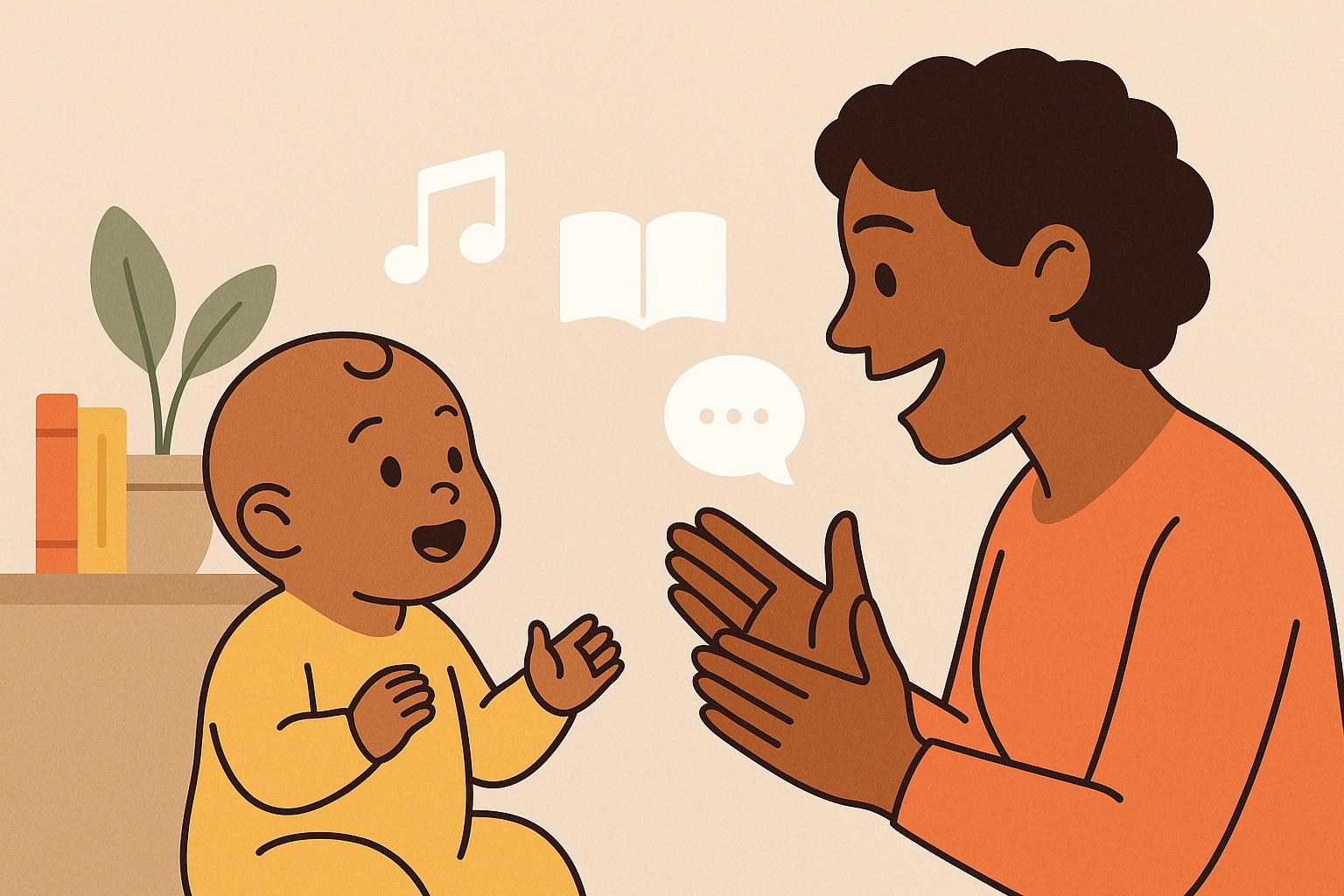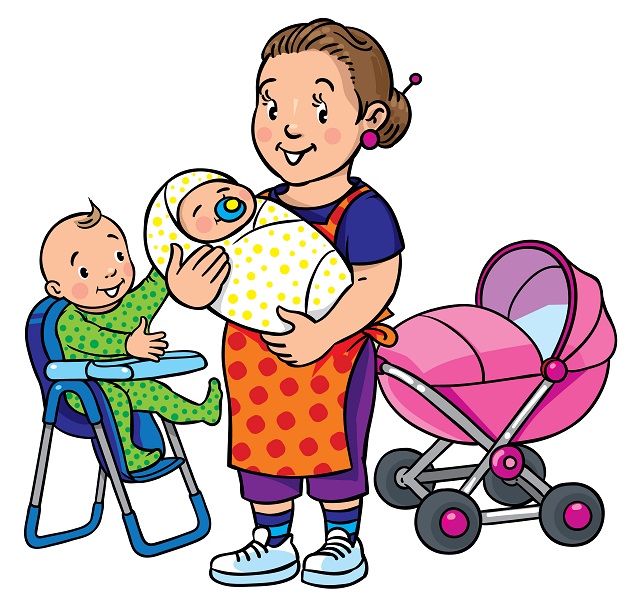Why baby cries and how to calm a crying baby
For a baby, crying is her way to communicate with her parents about her needs, unhappiness, pain and feelings. Crying can ensure a response from the parents or caregivers.
For parents, figuring out why their baby is crying is the most important job and is also the first step in soothing the crying baby.
Reason 1. I am hungry.
Hunger is perhaps the most common reason why your baby cries. The younger your baby is, the more likely it is the hunger that causes her to cry.
This is because the baby's stomach capacity is small and cannot hold much food, so she feel hungry much more often.
What are the signs?
When your baby is hungry, she may suck her fist, smack her lip or suck anything nearby. She may turn her head with mouth open (rooting). Lastly, she may also position herself for nursing by lying back.
How can we calm the baby down?
Offer your baby breast milk or formula milk, even if she did not finish her last feed just not too long ago. Sometimes, your baby may just want to drink more often but drink less each time.
Reason 2. The temperature is not right.
When your baby feels cold or too warm, she may cry too. For example, she may cry if you use a cold wipe to clean her bottom or change her clothes under an air-conditioner.
How can we calm her down?
In general, your baby should be warm to the touch in both her extremities (hands and feet) and her chest. If her hand or foot is cold, you can use a mitten or footie.
If your baby sweats a lot, it may indicate that the temperature is too high for her. You may need to lower down the room temperature or reduce the number of clothes that she wears.
Reason 3. Wet Diaper or dirty diaper
Your baby may cry if her diaper is wet and makes her feel very uncomfortable. This is because the wet diaper or poo irritates her skin, causing her to feel annoyed.
How can we calm the baby down or prevent it?
You may want to change your baby's diaper every 2 to 3 hours. However, you should change her diaper immediately once she has finished passing the stool.
Reason 4. Stomach problems from colic and gas
Occasionally, your baby may cry because of tummy trouble. The gas can cause stomach pain and your baby will become very fussy.
How can we calm the crying baby down?
In Singapore, most parents will use Ru Yi Oil or gripe water to calm the crying baby if they suspect gas in the stomach. These two products can be easily found at mini stores, supermarkets or personal products stores.
Reason 5. Teething pain.
Teething is a very painful process for your baby as each new tooth pushes through tender young gums. Some babies suffer more than others, but all are likely to be fussy and tearful from teething at some point.
If your baby seems to be in pain and you are not sure why, try feeling his gums with your finger. You may be surprised to discover the hard nub of an emerging baby tooth.
How can we calm her down?
Firstly, you can rub your baby's gums gently by using a clean finger or moistened gauze pad. The small pressure applied can ease your baby's discomfort.
Use teething gel or teething ring. Chilled teething ring or teething gel can be soothing on a baby's gums too.
Try hard food. There are biscuits available in supermarkets that can help to relieve the teething pain.
Reason 6. The want to be held (security).
Babies need a lot of cuddling. They like to see their parents' faces, hear their voices, listen to their heartbeats, and can even detect their unique smell. Crying can be their way of asking to be held close.
How can we calm her down?
Either her mother, father, or anyone close to your baby holding the baby can help to soothe her.
Reason 7. I want to sleep.
For some adults or older children, they may be able to fall asleep the minute they lie down on the bed. However, this may not be the same for small babies. In fact, the more tired the baby is, the harder it might be for her to fall asleep.
How can we calm her down?
As a short term solution, swaddling her may allow her to feel cozy and comfy, which can help her to fall asleep. Some babies also respond to a rocking motion or the sound of a lullaby.
In the long term, try setting a bedtime routine that signals to the baby that it is time for sleep. Once bedtime is approaching, you should prepare your baby for sleep. For example, you may bathe your baby first, followed by feeding and then sleeping.
Reason 8. Overstimulation
Babies learn from the stimulation of the world around them, but sometimes they may have a hard time processing it all - the new faces, lights, noise and many other new things. Sometimes, the new faces or things may really "scare" her. Just imagine how you would feel entering an environment which is completely new to you and not knowing anyone at the place.
How can we calm her down?
It is a good idea to take your baby home and relax in an environment that she is familiar with.
Swaddling her can also help to calm her down.
Reason 9. Lost pacifier
If you use a pacifier for your baby, she may cry when the pacifier falls out of her mouth.
How can we calm her down?
Putting the pacifier back into her mouth can help to soothe her. Make sure the pacifier is clean before you put it back.
Reason 10. I am sick.
You have satisfied all basic needs of your baby and she is still crying. You had tried swaddling her or singing to her, but all attempts have failed. Then, you may have to suspect that she is sick.
Firstly, try to check her temperature to confirm whether she has a fever. After that, listen very carefully to her crying. Usually, the cry of a sick baby is different from the ones caused by hunger, dirty diaper or other unhappiness.
If that is the case, you should visit a doctor and seek professional advice.
It takes a village to raise a child !
Join our WhatsApp Parenting Chat Groups By Area in Singapore.









